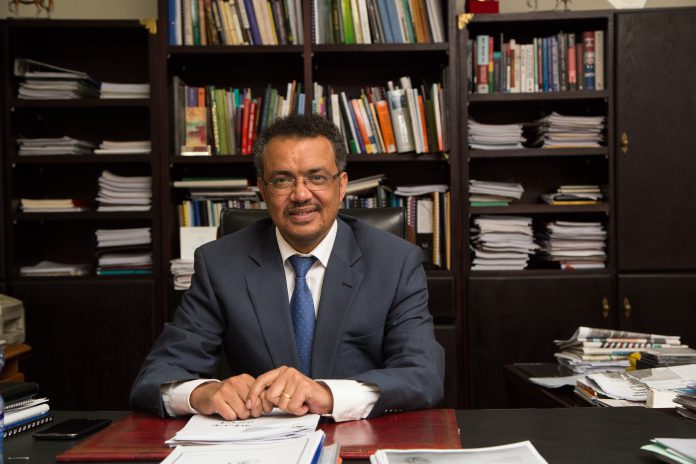Today's world
Scientific, technological and social progress over the last century has lifted hundreds of millions of people out of poverty. The World Health Organization (WHO) has played a leading role in this progress, achieving milestones such as the successful eradication of smallpox and the ongoing eradication of polio. During the period of the Millennium Development Goals, the WHO also made considerable progress in the fight against HIV, tuberculosis and malaria, and in reducing maternal and infant mortality. WHO has adopted the Framework Convention on Tobacco Control. Thanks to WHO's actions, more people are living longer and better lives than ever before.
But the world is changing, and WHO must be able to change with it. Despite all the progress we've made and the improvements we've recorded, major challenges, both new and old, lie ahead. Climate and environmental change pose new threats. Unhealthy lifestyles encourage the development of non-communicable diseases that jeopardize public health. With globalization, infectious disease pathogens are causing pandemics that threaten lives and economic security. Antimicrobial resistance threatens our ability to effectively treat common diseases and infections, while widespread population movements, international trade, inequalities in access to basic healthcare and social protection are leading to complex global health challenges.
"I want a world where everyone can lead a healthy and productive life, regardless of who they are or where they live."
I am convinced that a global commitment to sustainable development, an integral part of the Sustainable Development Goals, is a unique opportunity to act on the social, economic and political determinants of health, and to improve the health and well-being of everyone, everywhere.
For this vision to be realized, the WHO must be transformed into a strong and effective organization that can meet the new challenges of achieving the Sustainable Development Goals in the field of health. To achieve this, WHO needs a reinvigorated management that combines the right skills in public health, diplomacy and politics to tackle today's most pressing challenges.
"We need a stronger, reformed WHO - fit for the 21st century - owned fairly by all".
We need an effectively managed, adequately resourced and results-oriented WHO, with a strong emphasis on transparency, accountability and value for money.
My public health experience - gained in Ethiopia, regionally and globally - is practical and locally rooted.
I've spent many years working alongside other health experts to achieve ambitious results that have had a profound impact on the lives of millions of people, often with limited resources. By simply working together at all levels, whether in Geneva, in regional offices, in national capitals, or with local communities, we can move forward collectively.
I will be at the forefront of the initiatives to be taken, and I will place WHO at the center of actions for global health and major international priorities, through the following measures:
Putting people at the heart of our concerns
Access for all to basic health services will be my top priority. I will work to put in place mechanisms to listen to, learn from and meaningfully engage individuals and communities - including immigrants, displaced people and the disabled; people living in rural areas, slums and low-income areas; and other vulnerable populations.
Community involvement and the lessons we can learn from it will be at the heart of our efforts to mobilize resources and make authorities accountable for health for all, regardless of age, gender, income, sexual orientation or religion.
Putting health at the heart of global priorities
With a healthy population, entire communities and nations prosper, and the whole world obviously benefits. I will work alongside Heads of State, Ministers across a wide range of portfolios, multilateral institutions, the UN system, civil society and the private sector to put access to healthcare and prevention of infectious disease outbreaks at the heart of the world's security, economic and social development priorities. This requires the implementation of the International Health Regulations and the fight against emerging threats, such as antimicrobial resistance, climate and environmental change, and non-communicable diseases. Such a commitment will enable WHO and national health authorities to perform their core functions effectively, reaffirm WHO's key role in improving global health and safety, and take action to achieve the Sustainable Development Goals.
Involving countries and strengthening partnerships to achieve concrete results
Improving global health requires the effective commitment of all Member States and in multiple sectors. The strengthened and independent WHO under my leadership will adopt an approach based on science and innovation, results-oriented and proactive, multiplying open partnerships and ensuring the development of collective priorities with all stakeholders. In particular, I will contribute to national ownership of health issues, so that countries, as full and equal partners, participate and take the decisions that will affect the health of their populations.
WHO actions touch hundreds of millions of lives worldwide
Every program, every initiative, every allocation of funds is much more than a number or a line item in a budget. It's about saving a life. It's about enabling a child to reach adulthood. It's about giving a parent the chance to see their child survive and succeed. It's about enabling a community to live disease-free, or better preparing a country or region for emergencies and disasters. This is the change WHO can bring about, working in concert with member states and international partners.


